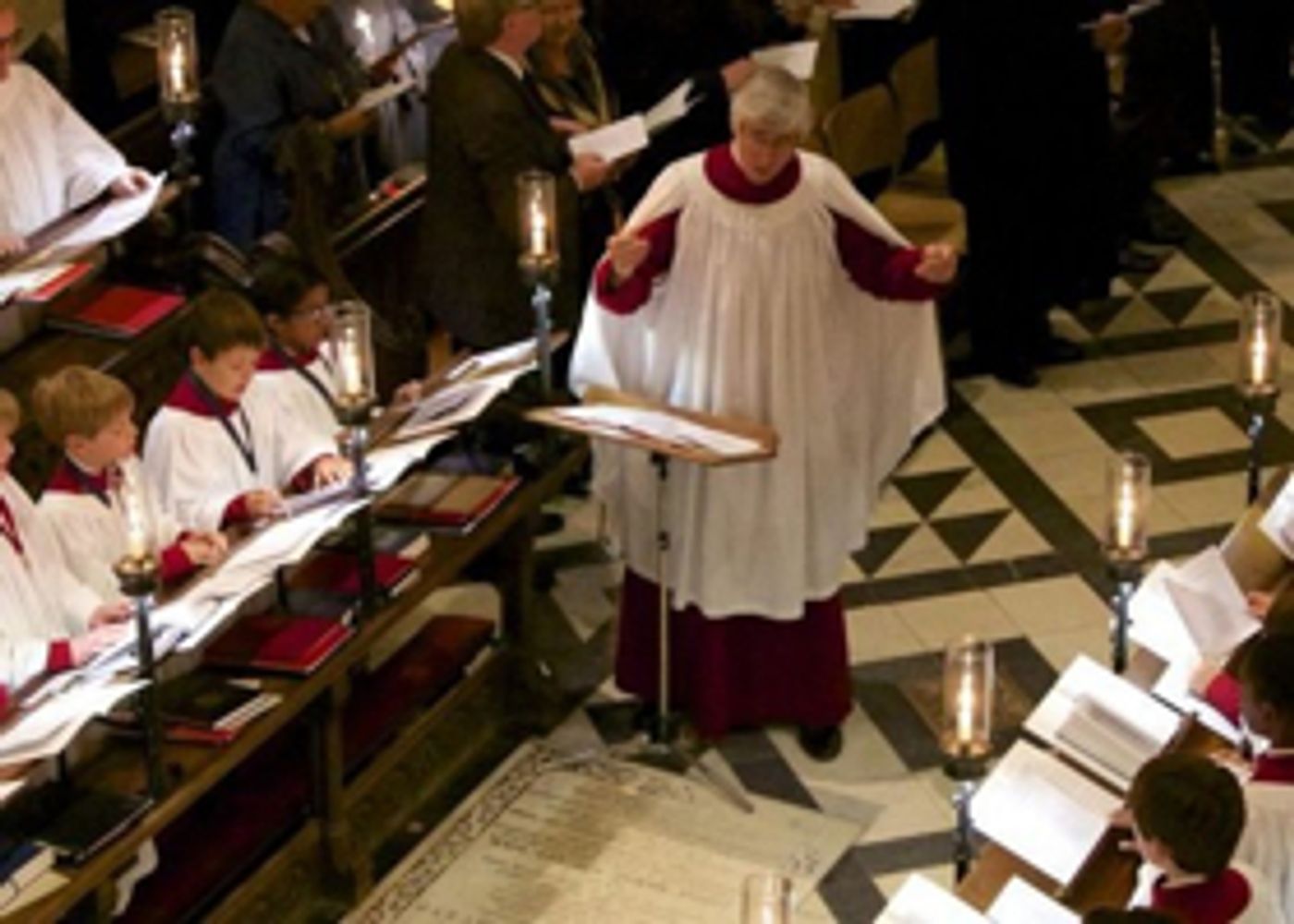Review: A Capella or Not, Oxford's Cathedral Choir Shows Fine Touch of Conductor Darlington at NY's St. Thomas 5th Ave.

Stephen Darlington with choristers.
I must admit that Christ Church Cathedral Choir--performing at New York's St. Thomas Church 5th Avenue last week to kick off a final tour with retiring Music Director and conductor Stephen Darlington--knocked my socks off with the first part of its program.
The men and boys of the choir--a 500-year-old institution founded in Oxford, UK, numbering just 27 voices--not only filled every inch of St. Thomas with amazing sound, as if they were many times that number, but performed the first half the program of British choral masterpieces a capella, and did so without a hitch.
These works included alternated works by John Sheppard (c. 1515-1558) and William Byrd (c. 1540-1643), with a solo for organ by Buxtehude thrown in for good measure. The pure sound of the choristers--soaring here, haunting there--was breathtaking, most spectacularly in the selections from Byrd's four-part "Mass for Four Voices," dating from 1592, an extraordinary example of English renaissance music from the time of the Tudors, ie, specifically the age of Elizabeth I.
According to the program, this was the kind of music performed in Catholic houses, against the edicts of the English Church (thus, it was published secretly and without title pages). The four-part composition was divided in three sections (the Kyrie and Gloria, then the Sanctus and Benedictus, and, last, and perhaps most formidable, the Agnus Dei) and shows the composer's significant dramatic range. With no musical ensemble to hide behind, the chorus's work was completely exposed and, under Darlington, came across as vigorous, yet brilliantly expressive.
The second half of the concert was filled with what might be called "crowd pleasers": in particular, works by Purcell and Handel. I was particularly taken with an unfamiliar (to me at least) Handel, "Zadok the Priest," an anthem composed for the coronation of King George II in 1727, which has since been sung at the coronation of every British monarch and is known as a British patriotic anthem. It seemed an unusual choice for non-Anglophiles, like myself; but in this assured performance, it was simple, yet powerful.
As if to say, "Now for something completely different," the choir ended the concert with "Love is here to stay" (also known as "Our love is here to stay"), written by the Gershwins for "The Goldwyn Follies." It was the last song written by George Gershwin before his death in 1937 and, here once again, the purity of the choristers' voices gave the music a very special, lovely quality that I've never heard before.
Music Director Darlington--in this case, the title means chief organist of Christ Church Cathedral as well as conductor--has commented that anyone who hears the choir "senses that every member is singing from the heart." That was certainly the case at the St. Thomas concert, which was a fitting sendoff for one of the UK's leading choral conductors.
Reader Reviews
Videos

